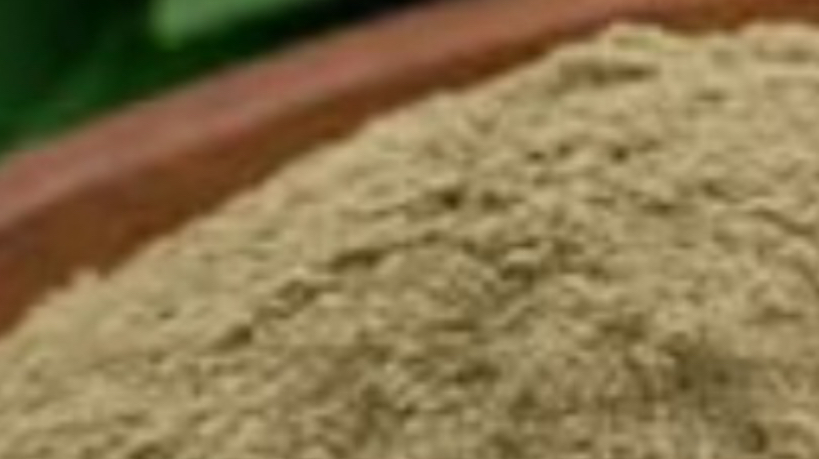Struggling to shed stubborn belly fat? You’re not alone—many Americans are searching for natural ways to slim down and feel healthier. While no single herb can magically “melt” fat, emerging research highlights one promising plant that may support your weight loss journey when paired with a balanced diet and exercise. Let’s explore this herb, its potential benefits, and how you can incorporate it into your routine for a healthier you!
What Is This Fat-Burning Herb?The herb gaining attention for its potential to aid weight loss is Caralluma fimbriata, a succulent plant traditionally used in parts of Asia to suppress appetite. Unlike trendy supplements or unproven fads, this herb has been studied for its effects on hunger and body fat. According to a 2014 study published in Appetite, participants who took Caralluma fimbriata experienced reduced appetite and slight decreases in waist circumference compared to a placebo group. While results vary, this herb shows promise as part of a holistic approach to managing belly fat. Always consult your doctor before trying new herbs, especially if you’re on medications or have health conditions.
How Does Caralluma Fimbriata Work?Understanding how Caralluma fimbriata may help with belly fat can empower you to make informed choices. Research suggests this herb works in a few key ways:
Appetite Suppression: The herb may influence hunger hormones, helping you feel fuller and reducing the urge to snack. A 2021 review in BMC Complementary Medicine and Therapies noted that Caralluma fimbriata could support appetite control in some individuals.Fat Metabolism: Some compounds in the herb may encourage the body to use stored fat for energy, though more large-scale studies are needed to confirm this.Blood Sugar Regulation: Stable blood sugar levels can reduce cravings and prevent fat storage, particularly around the belly. Early research indicates Caralluma fimbriata may improve insulin sensitivity.These effects are modest and work best when combined with lifestyle changes. Think of this herb as a helper, not a cure-all.Other Herbs That Support Weight LossWhile Caralluma fimbriata is promising, other herbs have also been studied for their potential to aid weight loss. Incorporating a variety of herbs into your diet can add flavor and health benefits. Here are a few evidence-based options:
Green Tea: Rich in catechins, green tea may boost metabolism and fat oxidation, according to a 2020 study in Nutrients. Sip a cup daily or use it in smoothies.Ginger: Known for its thermogenic properties, ginger may increase calorie burning and improve digestion, per a 2018 review in Critical Reviews in Food Science and Nutrition. Add fresh ginger to teas or meals.Turmeric: Curcumin, the active compound in turmeric, may reduce inflammation linked to obesity, as noted in a 2021 study in Frontiers in Pharmacology. Sprinkle turmeric on roasted veggies or mix it into soups.Cinnamon: This spice may stabilize blood sugar and curb cravings, according to Harvard Health. Add a pinch to oatmeal or coffee for a tasty boost.Always use herbs in moderation (no more than 1 tablespoon daily) and pair them with nutrient-rich foods for the best results.Lifestyle Tips to Maximize Belly Fat LossNo herb can replace the power of a healthy lifestyle. To reduce belly fat effectively, combine Caralluma fimbriata or other herbs with these practical, science-backed strategies:
Eat a Balanced Diet: Focus on whole foods like vegetables, lean proteins, and healthy fats. A 2024 article from the Mayo Clinic emphasizes that high-fiber foods, such as avocados and quinoa, promote satiety and reduce visceral fat.Stay Active: Aim for at least 150 minutes of moderate cardio (like brisk walking) and two strength-training sessions per week, as recommended by the CDC. Exercise burns calories and targets visceral fat, which surrounds your organs.Manage Stress: High cortisol levels from stress can increase belly fat, per Harvard Health. Try yoga, meditation, or deep breathing for 10 minutes daily to keep stress in check.Get Enough Sleep: Poor sleep disrupts hunger hormones, leading to weight gain. A 2023 study in Sleep Medicine found that 7–9 hours of quality sleep supports weight loss efforts.By adopting these habits, you’ll create an environment where herbs like Caralluma fimbriata can work more effectively.How to Safely Add Caralluma Fimbriata to Your RoutineReady to try Caralluma fimbriata? Here’s how to incorporate it safely and effectively:
Choose a Reputable Source: Look for high-quality, third-party-tested supplements from trusted brands. Avoid products with unlisted ingredients or exaggerated claims.Follow Dosage Guidelines: Studies typically use 500–1000 mg daily, often split into two doses. Never exceed the recommended amount, as this could lead to side effects like stomach upset.Pair with Meals: Taking the herb with food may enhance absorption and reduce digestive discomfort.Monitor Your Body: Start with a small dose and watch for side effects, such as nausea or allergies. Stop use and consult a doctor if you experience any issues.Combine with Healthy Habits: Use the herb as part of a broader plan that includes diet, exercise, and stress management for lasting results.Call to Action: Have you tried natural herbs for weight loss? Share your favorite tip in the comments below or explore more health insights on our site!Potential Risks and PrecautionsWhile Caralluma fimbriata is generally considered safe for short-term use (up to 12 weeks, per a 2015 study in Journal of Medicinal Food), it’s not for everyone. Keep these precautions in mind:Medication Interactions: The herb may affect blood sugar or interact with diabetes medications, per WebMD. Always check with your doctor if you’re on prescriptions.Pregnancy and Breastfeeding: There’s insufficient research on the herb’s safety for pregnant or nursing women, so avoid use during these times.Allergies: Some people may be allergic to Caralluma fimbriata. If you notice rash, itching, or swelling, discontinue use immediately.Not a Quick Fix: Weight loss takes time and consistency. Be wary of products promising instant results, as they often lack scientific backing.For personalized advice, consult a healthcare provider to ensure this herb fits your health goals.Why Belly Fat Matters for Your HealthReducing belly fat isn’t just about looking good—it’s about feeling good and protecting your long-term health. Visceral fat, the type that accumulates around your organs, is linked to serious conditions like heart disease, type 2 diabetes, and certain cancers, according to a 2024 report from Harvard Health. Unlike subcutaneous fat (the kind you can pinch), visceral fat releases hormones that can cause inflammation and disrupt metabolism. By using herbs like Caralluma fimbriata alongside a healthy lifestyle, you’re taking proactive steps to improve your overall well-being.Call to Action: Share this article with a friend who’s working on their health goals! Together, you can support each other in making positive changes.ConclusionWhile Caralluma fimbriata isn’t a magic bullet for melting belly fat, research suggests it may support appetite control and fat loss when combined with a healthy diet and regular exercise. Pairing this herb with other natural options like green tea, ginger, or turmeric can enhance your efforts while adding flavor to your meals. Remember, sustainable weight loss comes from consistent lifestyle changes, not quick fixes. Talk to your doctor, start small, and celebrate every step toward a healthier you!*Disclaimer: This article is for informational purposes only and does not substitute professional medical advice. Consult your doctor before making health changes

